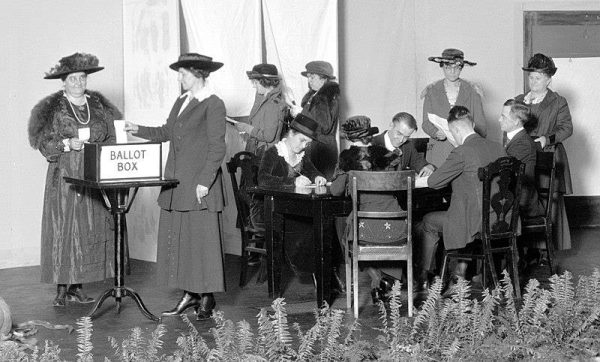Archive for the ‘Uncategorized’ Category

BOO YAH! … NAH!
Defining “Fun” for
Workplace Halloween
With the proper guidelines in place, a workplace Halloween party can build teamwork and morale.

Annual Virtual Seminar for Employers
Friday, January 17, 2025 Friday, February 28, 2025
Covering Employment Legal Essentials and New Workplace Laws
Now’s the time to secure your spot for our virtual sessions on “what’s new” in California employment law for 2025.

ELECTION ALERT
Voting Rights Notices, Possible Paid Time Off
Election Code 14000 requires an employer to provide an employee either beginning or end of shift time off to vote in a statewide election if that person cannot otherwise do so outside work hours. The company must pay for up to two hours of that voting time.

WHAT’S NEW IN 2025
WHISTLEBLOWER POSTING
California employers must prominently display a workplace whistleblowers’ rights and responsibilities notice.
The Labor Commissioner’s Office’s (LCO) existing “Whistleblowers are Protected” sample notice states the agency “believes” (but does not guarantee) that its text complies with applicable law.

CAUTIONARY TALE EPISODE 89
WAGE THEFT NOT SO DEFT
Restaurant Franchisee Must Pay $1.7 Million to 550 Employees
The California Labor Commissioner’s Office (LCO) has obtained a $1.7 million settlement from a Bakersfield-based Wingstop restaurant franchisee on behalf of 550 employees.

MUNCHED FOR LUNCH
No Break for Paying
Employees’ Meal Times
If an employer is looking for any slack for inadvertent errors in its pay practices, California’s highly technical meal and rest break rules offer no sympathy. In this state’s overheated climate of…

HANDBOOK HELPER EPISODE 44
GET-AWAY TIME
Personal Leaves of Absence
California regularly expands the already long list of unpaid required leaves of absence…

CAUTIONARY TALE EPISODE 88
SUNBURNED
National Raisin to Pay Big for Sexual Harassment of Seasonal Female Workers
National Raisin will pay $2 million and its co-employer Select Staffing $500,000 to settle sexual harassment allegations brought by the Equal Employment Opportunity Commission (EEOC).

CAUTIONARY TALE EPISODE 87
TAKE CARE
Tech Giant Must Pay for Unlawfully Interfering with Protected Leave
The California Civil Rights Department (CRD) has obtained a $14,425,000 settlement from Microsoft Corporation for allegedly discriminating and retaliating against employees returning from disability, pregnancy, and family caretaking leave.

FREE MONEY
California Paid Family Leave Grant Program Available to Eligible Businesses
California’s Paid Family Leave (PFL) — a temporary disability program administered by the state’s Employment Development Department (EDD) — provides up to eight weeks of state-funded partial wage replacement benefits for workers needing time off to care for a seriously ill family member, bond with a new child, or participate in a qualifying military event.
